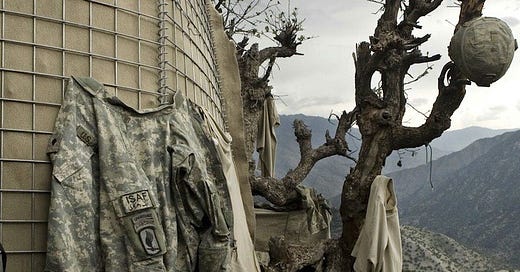The onset of America’s wars in Afghanistan and Iraq in the early 2000s coincided with the explosion in availability of filmmaking tools. These have unquestionably been our most photographed, recorded and otherwise documented conflicts. The war documentary is now a thriving genre, which is sad, in a way. The result is that there are any number of great d…
Keep reading with a 7-day free trial
Subscribe to Nonfics to keep reading this post and get 7 days of free access to the full post archives.



